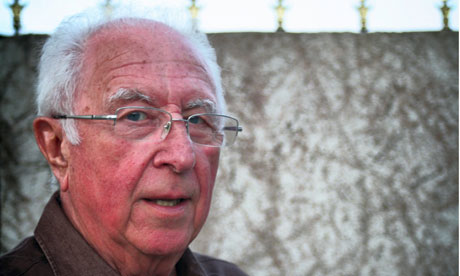Leftwing Labour MP for Manchester Central for 18 years

Bob Litherland believed Labour had to persuade voters through its policies.
As for many other members of the politically aspirational working class in the 20th century, it was reading Robert Tressell's The Ragged Trousered Philanthropists as a young man that fuelled Bob Litherland's socialism. The former Labour MP, who has died aged 80 from cancer, went to work in the printing industry when he left school at the age of 15, but later embarked on a course of self-education through Labour party correspondence courses. Throughout his life, he was a left-wing member of the party he joined as a youth of 16, espousing a number of radical causes, but he never departed from one of the primary messages of Tressell's seminal work in putting the need for socialists to work together to achieve their political ends above the luxury of purist ideology. He believed that Labour had to pursue policies that persuaded the electorate to support them. "You can't do anything without power," he used to say. "It's no good being in a powerless minority." Litherland was born in a terraced house in Collyhurst, Manchester, in an area that Friedrich Engels drew upon as illustrative for his 1844 study The Condition of the Working Class in England, and was hugely proud when he came to represent the area as MP for Manchester Central after the 1979 election. He won the first byelection in that parliament, shortly after Margaret Thatcher's Conservative government took office, succeeding Labour's Harold Lever, who had done a deal agreeing to resign in exchange for a seat in the House of Lords. There was never going to be much doubt about Litherland's politics. His father, Robert, an engineer, had been brought up in an orphanage – not because his parents were dead but because they could not afford to keep six children. His mother, Mary, was a mill worker. The boy was educated initially at Brookdale Park, Newton Heath, before going to North Manchester grammar school. He trained in book-binding and as a guillotine operator, and then became a print sales representative. His political and trade union sympathies developed speedily. Elected to Manchester council in 1971, he believed strongly in the potential for municipal socialism. He became chairman of the council's direct works committee, which was heavily engaged in slum clearance in the 1970s, and Litherland's pride in the improvements in Manchester's council housing was reflected in his maiden speech in the Commons. He was the first MP to be sponsored by his union, Sogat, which represented print workers. Litherland was not a firebrand MP, but maintained a consistent leftwing position. He thought Harold Wilson and James Callaghan could have been bolder as prime ministers, joined the Tribune group and then, during the party's internal strife in the 1980s, the Campaign group. He was delighted when Michael Foot became party leader, sponsored Tony Benn for the deputy leadership in the acrimonious election in 1981 and subsequently supported Eric Heffer and John Prescott in their abortive leadership bids. He was a member of CND, voted against sending the taskforce to the Falklands and made a controversial visit to Kabul with two other leftwingers in 1981. He was never afraid to speak his mind, but was widely liked and respected for his decency. Although he did not share Tony Blair's politics, he forgave him quite a lot for being able to win elections for Labour. Litherland stood down as an MP when he reached retirement age, leaving the Commons in 1997. Despite a diagnosis of cancer 10 years ago, the last years of his life were happy ones as he pursued, among other interests, a love of watercolour painting. He is survived by his wife, Edna, whom he married in 1953, his children, Neil and Joy, five grandchildren and three great-grandchildren. Gerald Kaufman writes: Bob Litherland was Manchester through and through. A member of the city council before entering parliament, one of his roles was chief whip. Graham Stringer [Labour MP for the Manchester constituency of Blackley and Broughton] tells me that, when a rookie councillor, he intended to vote against council-house rent increases. Bob suggested to Graham that they pop out of the council chamber for a chat. By the time the chat was over, so was the vote. In parliament, Bob did not mince his words. He denounced Michael Howard, Conservative employment secretary from 1990 to 1992: "The right honourable and learned gentleman is Dr Goebbels incarnate. This is a squalid statement by a squalid minister." He supported Michael Foot as Labour leader in the period up to the 1983 election. At the traditional rally at Trafford Park, he asked me: "Do you believe the opinion polls?" Those polls were terrible, and my one-word answer, "Yes", left him crestfallen. In his 18 years in parliament, Bob never got to sit on the government side of the house. Yet no one could have served his city more loyally or stood up for his constituents more staunchly. • Robert Kenneth Litherland, politician, born 23 June 1930; died 13 May 2011
No comments:
Post a Comment